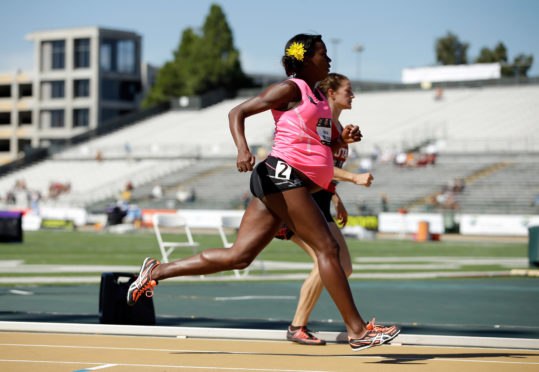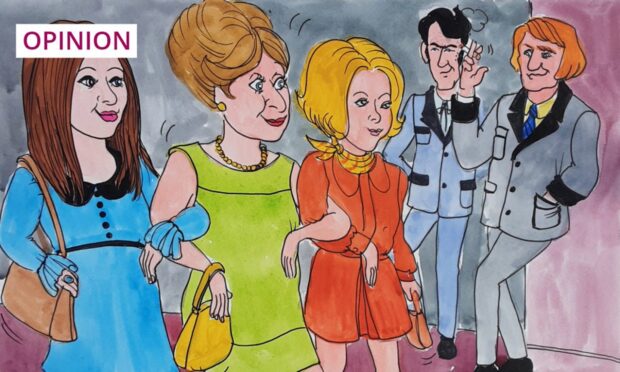The first time I saw the “Run Like a Girl” adverts for Always, I had a lump in my throat.
Back then, we were more used to the yawn inducing stereotypes of the ad men – and they were mainly men – who sold not just products but a particular view of society.
Women were up to their elbows in Fairy soap suds (which made your skin just gorgeous, by the way), or demonstrating that true fulfilment came from serving your man sausage casserole drowned in Bisto gravy. “Run like a Girl”, with its replacement of female simpering with female strength, felt rebellious until the obvious occurred. There was an advertising agency involved.
To believe, or not to believe – that was the question. Did Procter and Gamble, the manufacturers of Always sanitary products, really believe in female empowerment – or simply recognise an effective marketing tool? What was true principle, and what was dosh- linked consumer manipulation?
That question cropped up again recently with Nike, the American sportswear giant which gobbles up 48% of the American athletic footwear market. This time, we got an answer. For three decades, Nike have been producing adverts with the theme of “just do it”. When female empowerment because increasingly fashionable, they contracted some of the biggest stars of women’s sport to promote their message. Tennis champion Serena Williams. Athlete Allyson Felix, who, with nine Olympic medals to her name, is the most decorated track and field athlete ever. Runner Alysia Montana, whose photograph went viral when she was pictured on a running track at eight months pregnant.
Nike used these women to promote an aspirational message: “dream crazier”. Their adverts showed strong, independent women, battling for justice in an unequal world – and achieving it. Nike apparently understood women’s predicaments. “If you dream of equal opportunities, you are delusional. If you stand up for something, you are unhinged. If you get angry, you are hysterical and irrational.” It was, said the advert, crazy. And the punchline? “Show them what crazy can do.”
Perhaps Nike forgot they weren’t hiring actresses to play Bisto moms when they hired elite athletes, women whose drive and focus are beyond question. They didn’t just mouth words that someone else wrote for them but which they didn’t believe. Because now, the Nike women have shown the company exactly what crazy can do when it becomes vocal. That picture of Montana that went viral? She was on the track because Nike cut their athletes’ pay if they got pregnant. And Allyson Felix? She wrote an article for the New York Times naming the elephant in Nike’s locker room, and then left to join Athleta, a company that she said offered 100% support during pregnancy.
This week, Nike finally put their money where their hypocritical mouths have been, and issued a letter to their female athletes, outlining a change in maternity rights. Now, athletes’ pay and bonuses cannot be cut for an 18-month period covering before and after the birth. It’s an important development, and one that came about because of pressure brought to bear by women like Felix, Montana, and British runner Jo Pavey, all of whom have been prepared to speak out. Felix experienced complications during the Caesarean birth of her daughter Camryn and spent a month at the hospital caring for herself and her newborn baby. In the midst of the turmoil, she would find herself at 1am, wondering how she could fit in a gym session to get back to competitive standard in time for her Nike contract.
Let’s be clear: maternity rights are not just about helping women. They are about helping the world to function in a way that enables all of us to have dignity, respect and fulfilment at work: the basics of human rights. Both genders create children; both carry responsibility. “Can you be the generation that ends gender inequality?” one Nike advert asks. Only if we take on companies like Nike.
Sometimes, we forget just how much work is still to be done on equality because we are misled by those who talk the talk but don’t walk the walk. The female athletes certainly ran the run on this one, exposing the truth of those adverts. Nike’s commitment to women seemed unequivocal. But that was for the cameras. Their real commitment was to the corporate wallet.
Sad that, so often, those in power don’t understand what they will gain in terms of loyalty, respect and sheer hard work from employees if they show they truly care and invest in them. When Felix moved to Athleta, she became more than a name. She became a person. “They’re truly interested in me as more than just an athlete – but as a woman, a mother and an activist.”
Empowerment is about the collective, the ability to change the world by coming together with common ideals and common purpose. When that happens, it’s more powerful, more inspiring, than any artificial ad man’s version.
“Don’t change your dream, change the world,” says one Nike advert.
I think their female athletes just did. Bravo.
Catherine Deveney is an award-winning investigative journalist, novelist and television presenter











